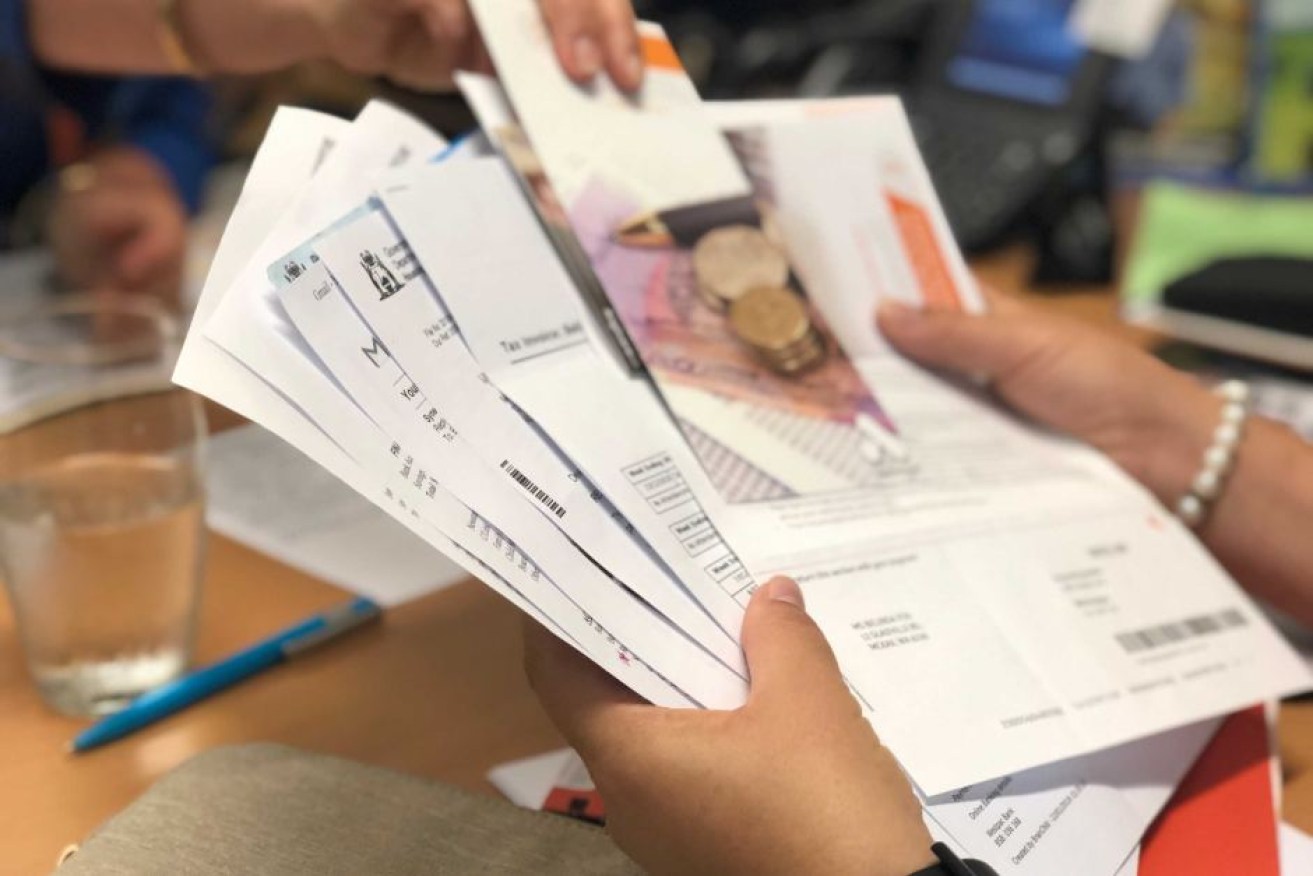The big question: ”What if I can’t pay my mortgage?’
There’s one question a lot of Australians will be asking at the moment: What if I can’t pay my mortgage?

Many Australians will be worried about their financial security amid the coronavirus outbreak. (ABC News: Kit Mochan)
The answer in the short term is simple: for now, you’ll be OK if you’re with the big four banks. You’ll be able to keep your home.
The longer-term picture is a little murky though.
The health crisis brought on by the coronavirus pandemic is producing an unfolding financial crisis and the potential for a deep and long-lasting economic recession.
Many Australians will, rightly so, be worried about their own personal financial security.
The biggest asset many Australians have is their home. It also provides us with a sense of belonging, familiarity and relative safety.
Our homes are crucial to our sense of wellbeing
Anxiety levels skyrocket, however, the moment you lose your job. That’s when you realise, depending on how much of a buffer you have, that you may struggle to meet your mortgage repayments.
AMP Capital’s chief economist, Shane Oliver, is now forecasting that “the hit to the economy from coronavirus shutdowns could be worse than anything seen in the post-World War II period”.
He also recently wrote that:
“[A deep] recession with, say, 10 per cent or more unemployment risks tripping up the underlying vulnerability of the housing market around high prices and high debt levels.”
“This could see a 20 per cent fall in [property] prices.”
That is, a property market crash.
Westpac is now forecasting unemployment to reach 7 per cent by October 2020.
You can see that if the coronavirus-induced economic crisis continues, the unemployment rate could easily climb higher than that — leading to mass mortgage defaults, a property market crash, and a further escalation of the economic crisis.
This is the threat at the centre of what the banks are doing with their current mortgage policies.
Australia’s banks sniff the crisis
To put it bluntly, Australia’s banks would be rocked to the core by mass mortgage defaults.
On Friday, the Australian Banking Association stepped up and told the nation that all of its members had agreed to give small business a reprieve from loan repayments.
It stopped short, however, of letting mortgage customers off the hook, only saying they would get a break if the need arose.
It was a glaring omission.
Within hours, all four major banks came out to say they were going to give their mortgage customers some time off from paying their loans… if they indeed needed time.
Let’s look at each of their statements in brief.
A CBA spokesperson said:
All of our home loan customers will be able to pause their repayments for up to six months should they need to.
Westpac said:
Westpac customers who have lost their job or suffered loss of income as a result of COVID-19 should contact us for three months deferral on their home loan mortgage repayments, with extension for a further three months available after review.
The NAB wrote:
[Customers can] Pause home loan repayments for up to six months, including a three-month checkpoint.
And the ANZ noted:
[Customers can] Request a deferral of home loan repayments for up to six months, with a review at three months, with interest capitalised[2].
Is it a home loan holiday?
The reason for putting ANZ last on this list is to highlight a glaring problem with these bank announcements. Do you see the “[2]” above?
At the bottom of ANZ’s press release it reads:
“[2] Interest Capitalisation is the addition of unpaid interest to the outstanding loan balance. The outstanding loan balance increases when payments are postponed during periods of deferment or forbearance and unpaid interest is capitalised.”
The CBA also confirmed that “any pause in repayments will end up being capitalised into the rest of the loan term.”
That’s a very complicated way of saying, “after you’re done with your mortgage ‘holiday’, as some are calling it, you’ll have to keep up your repayments, and your balance will be bigger than when you started the deferral process”.
The harsh reality
Households were already being squeezed before this financial crisis hit.
The reality is that while the banks have ensured that if you can’t pay your mortgage for whatever reason for much of the rest of the year, you won’t lose your home, for some (not all) bank customers it’ll simply mean pushing a lot of financial pain further down the road.
Think of it in practice: You lose your job, so you use your savings to meet your loan repayments for a month or two. You then call the bank to say you’d like a deferral of home loan repayments for three months.
After three months, still unemployed, you ask for an extension of your loan and it’s granted.
Fast forward six months and, for argument’s sake, you’ve returned to your old job, or found a new job. You then face the prospect of having no home loan buffer whatsoever and an even bigger loan to pay off.
You may have also racked up some short-term personal debt to keep you afloat over the previous six months.
These measures taken by the banks may prevent a short-term financial catastrophe (think property market collapse and banks in financial distress), but it also runs the risk of entrenching many households in financial hardship.
However, there really seems very little alternative at this point.
– ABC / David Taylor















